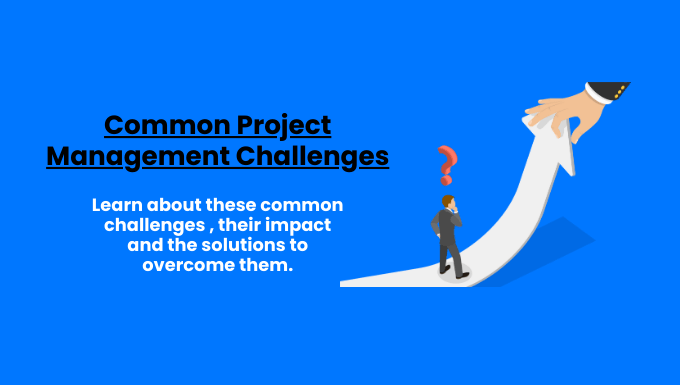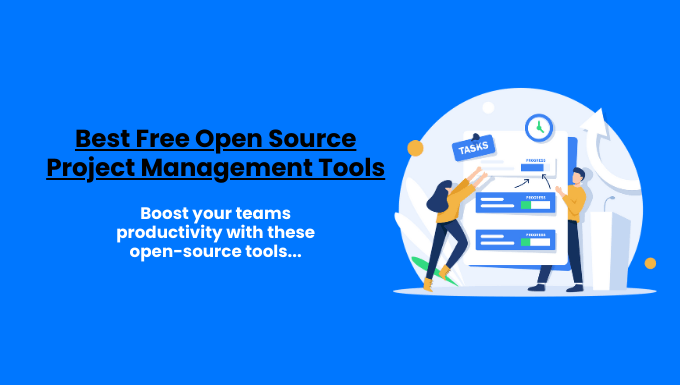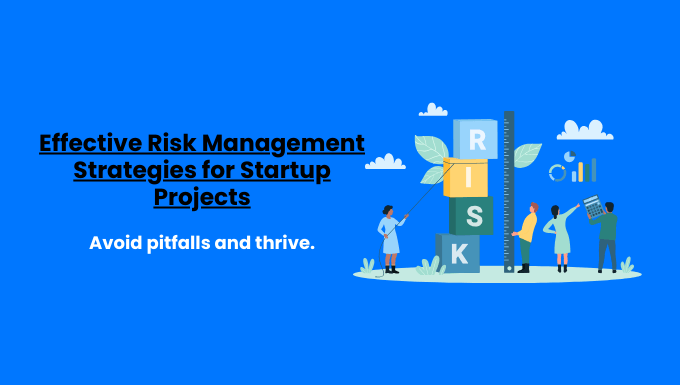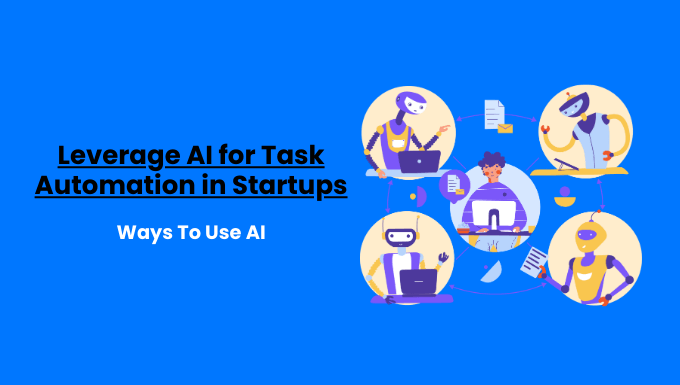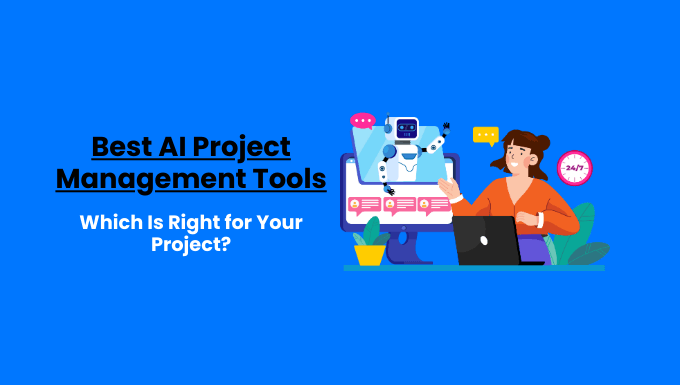AI Risk Management in Early-Stage Startups is more crucial than ever.
Ready to shield your startup from unexpected pitfalls?
Discover how leveraging AI can not only detect risks but also turn them into opportunities.
This guide delves into the critical realm of AI risk management for startups, offering insights and strategies to help you navigate this complex landscape.
Key Takeaways:
- Startup Risks Unveiled: Early-stage startups face financial, operational, and market risks needing proactive management.
- AI as a Shield: Leveraging AI enhances risk detection and improves decision-making.
- Real-Time Insights: AI provides real-time risk assessments, saving time and resources.
- Strategic Implementation: Choose the right AI tools and foster an AI-ready culture.
- Ethics Matter: Ensure ethical use of AI with data privacy compliance and human oversight.
Consider this: According to a recent study by CB Insights, 35% of startups fail due to a lack of market need, while 38% fail due to running out of cash or failing to raise new capital.
Proper risk management can help address both these issues by ensuring your AI solutions are market-aligned and financially viable.
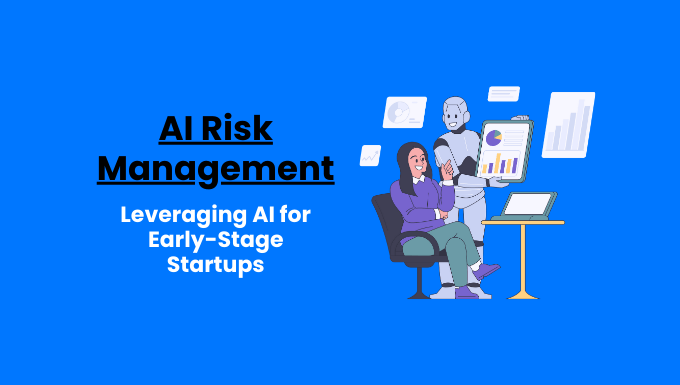
Contents
ToggleUnderstanding the Risk Management Needs of Startups
Before we delve into AI-powered solutions, it’s crucial to understand the unique risk landscape that startups navigate.
Early-stage companies, particularly those in the AI sector, face a complex web of challenges that can make or break their success.
Common Risks Faced by Early-Stage Startups
1. Financial Risks
Financial stability is often the most pressing concern for startups.
Key financial risks include:
- Cash Flow Issues: According to a U.S. Bank study, 82% of business failures are due to poor cash management. For AI startups, high development costs can exacerbate this risk.
- Funding Challenges: The National Venture Capital Association reports that only about 0.05% of startups receive venture funding. AI startups often require significant capital, making funding a critical risk factor.
2. Operational Risks
Operational efficiency can make or break a startup.
Key operational risks include:
- Process Inefficiencies: Startups often lack established processes, leading to inefficiencies and errors.
- Dependence on Key Personnel: In a CB Insights survey, 23% of failed startups cited not having the right team as a reason for failure.
3. Market Risks
The rapidly evolving business landscape poses significant market risks:
- Competitive Landscape: The AI market is highly competitive. Gartner predicts that the global AI software market will reach $62.5 billion in 2022, attracting numerous players.
- Market Volatility: AI technologies evolve rapidly, potentially rendering solutions obsolete quickly.
4. Compliance and Regulatory Risks
Navigating the regulatory landscape is crucial for AI startups:
- Complex Legal Requirements: AI applications often involve data privacy concerns. The GDPR in Europe and similar regulations worldwide pose compliance challenges.
- Ethical Considerations: AI ethics is a growing concern. A study by Capgemini found that 41% of senior executives report major/high AI deployments that did not meet ethics and transparency goals.
Limitations of Traditional Risk Management Approaches
Traditional risk management strategies often fall short for AI startups due to:
- Manual Processes Lacking Scalability: Traditional methods can’t keep pace with the volume and velocity of data in AI operations.
- Delayed Responses to Emerging Risks: In the fast-paced AI landscape, risks can materialize quickly, outpacing manual assessment methods.
- Inadequate Data Analysis Capabilities: AI risks often involve complex, multidimensional data that traditional tools struggle to analyze effectively.
Understanding these risks and limitations is the first step in developing an effective AI risk management strategy for your startup.
In the next section, we’ll explore how AI itself can be leveraged to address these challenges.
Looking to streamline your startup’s operations? Learn about the best project management tools for startups.
Leveraging AI for Risk Management in Startups
As we’ve seen, startups face a myriad of risks that traditional management approaches struggle to address.
This is where AI comes into play, offering powerful tools to revolutionize risk management for early-stage companies.
Overview of AI Technologies Applicable to Risk Management
1. Machine Learning and Predictive Analytics
Machine learning algorithms can analyze vast amounts of historical data to predict future risks.
This technology is particularly powerful for startups in rapidly evolving industries.
- Use Case: Financial Risk Prediction A fintech startup might use machine learning to analyze market trends, customer behavior, and economic indicators to predict potential financial risks.
- Key Benefit: According to a study by Deloitte, 70% of financial services firms report that AI improves their ability to predict cash flow and liquidity risks.
2. Natural Language Processing (NLP)
NLP enables AI systems to understand and analyze human language, making it invaluable for monitoring unstructured data sources.
- Use Case: Reputation Risk Management An AI startup could use NLP to analyze social media posts, news articles, and customer reviews to identify potential reputation risks early.
- Key Benefit: Forbes reports that NLP can help companies identify risks 30% faster than traditional methods.
3. Robotic Process Automation (RPA)
RPA can automate routine risk management tasks, freeing up human resources for more complex decision-making.
- Use Case: Compliance Risk Management A healthcare AI startup might use RPA to automatically monitor and report on compliance with data privacy regulations.
- Key Benefit: Gartner predicts that RPA software revenue will reach nearly $2 billion in 2021, highlighting its growing importance in business operations.
Benefits of Using AI Risk Management in Early-Stage Startups
Implementing AI-powered risk management offers several key advantages:
- Enhanced Risk Detection and Prediction: AI can identify subtle patterns and correlations that humans might miss, leading to more accurate risk predictions.
- Real-time Monitoring and Faster Response Times: AI systems can continuously monitor vast amounts of data, enabling real-time risk detection and rapid response.
- Cost-effective Solutions for Limited Budgets: While initial setup costs may be significant, AI can provide long-term cost savings by automating tasks and improving efficiency.
- Better Allocation of Resources: By automating routine tasks, AI frees up human resources to focus on strategic decision-making and complex risk scenarios.
Challenges and Considerations
While AI offers powerful risk management capabilities, it’s not without challenges:
- Data Quality and Accessibility: AI models are only as good as the data they’re trained on. Ensuring high-quality, relevant data can be challenging for startups.
- Lack of In-house AI Expertise: Many startups may not have the internal expertise to develop and maintain sophisticated AI systems.
- Initial Setup Costs and ROI Considerations: Implementing AI solutions can require significant upfront investment, which may be challenging for cash-strapped startups.
- Ensuring Ethical Use of AI: Ethical considerations in AI use are becoming increasingly important, particularly in risk management applications.
By understanding these benefits and challenges, startups can make informed decisions about implementing AI in their risk management strategies.
In the next section, we’ll explore practical steps for putting these AI-powered strategies into action.
Interested in how AI is changing other aspects of business? Check out our article on how AI is transforming project management.
Implementing AI-Powered Risk Management Strategies
Now that we understand the potential of AI in risk management, let’s explore how startups can practically implement these strategies.
This section will guide you through the process of integrating AI into your risk management framework.
Assessing Your Startup’s Risk Profile
Before implementing any AI solution, it’s crucial to understand your specific risk landscape:
- Identify Key Risk Areas: Analyze your business model, market, and operations to pinpoint your most significant risks.
- Set Clear Objectives: Define what you want to achieve with AI-powered risk management. This could range from improving financial forecasting to enhancing cybersecurity.
Pro Tip: Use a risk assessment matrix to prioritize risks based on their likelihood and potential impact. This will help you focus your AI efforts where they’re needed most.
Selecting the Right AI Tools and Platforms
Criteria for Choosing AI Solutions
When evaluating AI risk management tools, consider the following:
- Scalability: Ensure the solution can grow with your startup.
- Cost-effectiveness: Look for solutions that offer a good balance of features and affordability.
- User-friendliness: The tool should be accessible to team members without extensive AI expertise.
- Integration Capabilities: It should integrate smoothly with your existing systems.
Popular AI Risk Management Tools for Startups
Here’s a comparison of some top tools:
| Tool | Key Features | Best For | Pricing |
| IBM Watson | Advanced NLP, custom model training | Comprehensive risk analysis | Custom pricing |
| H2O.ai | Open-source machine learning | Data-driven startups | Free to enterprise plans |
| Dataiku | Collaborative data science platform | Cross-functional teams | Custom pricing |
Remember, the best tool depends on your specific needs and resources.
Step-by-Step Guide to Implementing AI in Risk Management
Step 1: Data Collection and Preparation
- Gather relevant internal and external data.
- Ensure data quality and integrity.
- Organize data in a format suitable for AI analysis.
Step 2: Developing or Selecting AI Models
- Choose between custom models and off-the-shelf solutions.
- Align AI models with your risk management goals.
- Consider partnering with AI experts if in-house expertise is limited.
Step 3: Pilot Testing and Validation
- Run initial tests to validate AI performance.
- Compare AI results with traditional risk assessment methods.
- Make necessary adjustments based on results.
Step 4: Full-Scale Implementation
- Integrate AI tools into daily operations.
- Train staff on new processes and systems.
- Establish clear protocols for AI-generated risk alerts.
Step 5: Ongoing Monitoring and Optimization
- Regularly review AI outputs and effectiveness.
- Continuously improve through feedback loops.
- Stay updated on new AI developments in risk management.
Building an AI-Ready Culture
Successfully implementing AI goes beyond just the technology.
It requires fostering an AI-ready culture within your startup:
- Encourage Innovation: Create an environment where team members feel comfortable exploring and suggesting new AI applications.
- Provide Training: Invest in AI literacy for your team. According to a PwC study, 60% of executives say their employees will need to learn new skills to work with AI.
- Promote Collaboration: Break down silos between departments to ensure a holistic approach to AI-powered risk management.
- Lead by Example: As a founder or leader, demonstrate commitment to AI adoption in risk management processes.
By following these steps and fostering an AI-ready culture, your startup can effectively leverage AI for robust risk management.
In the next section, we’ll explore real-world case studies to see these principles in action.
Want to learn more about managing teams in a startup environment? Check out our guide on managing remote teams.
Case Studies and Real-world Applications
Understanding how other startups have successfully implemented AI risk management can provide valuable insights and inspiration.
Let’s explore two real-world examples of early-stage companies leveraging AI to mitigate risks and drive growth.
1. Lemonade: Using AI for Financial Risk Mitigation
Lemonade, an insurtech startup founded in 2015, has revolutionized the insurance industry by using AI to manage financial risks.
Challenge: As a new entrant in the competitive insurance market, Lemonade faced the challenge of accurately assessing risk and pricing policies while maintaining profitability.
Solution: Lemonade implemented an AI-driven underwriting and claims processing system. Their AI chatbot, Maya, gathers information from customers and uses machine learning algorithms to analyze risk factors and set premiums in real-time.
Outcome:
- Reduced underwriting time from weeks to seconds.
- Improved accuracy in risk assessment, leading to more competitive pricing.
- Achieved a loss ratio of 67% in Q2 2021, compared to the industry average of 82%.
By leveraging AI for risk management, Lemonade has not only improved its operational efficiency but also gained a competitive edge in the insurance market.
2. Flock: AI-Powered Risk Analysis for Drone Operations
Flock, a London-based insurtech startup, uses AI to analyze and mitigate risks associated with commercial drone operations.
Challenge: The rapidly evolving drone industry presents unique risks that traditional insurance models struggle to assess accurately.
Solution: Flock developed an AI-powered risk intelligence platform that analyzes real-time data from various sources, including weather conditions, population density, and flight paths, to quantify risks for each drone flight.
Outcome:
- Provides real-time, per-flight insurance pricing based on actual risk factors.
- Helped reduce accident rates by incentivizing safer flight practices.
- Achieved a 15x growth in gross written premium between 2018 and 2020.
Flock’s innovative approach to risk management has not only disrupted the drone insurance market but also contributed to improved safety standards in the industry.
Lessons Learned and Best Practices
These case studies highlight several key factors contributing to successful AI risk management in startups:
- Data-Driven Decision-Making: Both Lemonade and Flock leverage vast amounts of data to make more accurate risk assessments. Startups should prioritize data collection and analysis to inform their risk management strategies.
- Real-Time Risk Assessment: The ability to assess and price risk in real-time allows for more dynamic and accurate risk management. This is particularly crucial in fast-moving industries or when dealing with rapidly changing risk factors.
- Customization and Flexibility: Both companies tailored their AI solutions to address specific industry challenges. Startups should focus on developing or adopting AI tools that can be customized to their unique risk profiles.
- Continuous Learning and Improvement: AI models should be constantly updated and refined based on new data and outcomes. This ensures that risk management strategies remain effective as the business grows and market conditions change.
- Balancing Innovation with Risk Management: While embracing innovative AI solutions, startups must also ensure they have robust risk management frameworks in place. This includes regular audits of AI systems and maintaining human oversight.
To avoid common pitfalls when implementing AI for risk management, startups should:
- Ensure data quality and relevance before feeding it into AI systems.
- Maintain transparency in AI decision-making processes to build trust with stakeholders.
- Regularly assess and mitigate potential biases in AI algorithms.
- Stay compliant with relevant regulations and industry standards.
- Invest in cybersecurity to protect sensitive data used in AI risk management systems.
By learning from these successful examples and following best practices, early-stage startups can effectively leverage AI to manage risks, drive growth, and gain a competitive advantage in their respective markets.
Ethical and Legal Considerations in AI Risk Management
As startups increasingly adopt AI for risk management, it’s crucial to address the ethical and legal implications of these technologies.
Balancing innovation with responsible AI practices not only helps mitigate risks but also builds trust with customers, investors, and regulators.
Data Privacy and Compliance
Startups leveraging AI for risk management must prioritize data privacy and comply with relevant regulations.
Key considerations include:
- Understanding Regulations: Familiarize yourself with data protection laws such as the General Data Protection Regulation (GDPR) in the EU and the California Consumer Privacy Act (CCPA) in the US. These regulations have significant implications for how you collect, process, and store data used in AI systems.
- Data Minimization: Collect only the data necessary for your AI risk management processes. This reduces the risk of data breaches and simplifies compliance efforts.
- Consent and Transparency: Clearly communicate to users how their data will be used in AI systems and obtain explicit consent when required.
- Data Security Measures: Implement robust cybersecurity practices to protect sensitive data used in AI risk management. This includes encryption, access controls, and regular security audits.
- Cross-Border Data Transfers: Be aware of regulations governing data transfers between countries, especially if your startup operates internationally.
Implementing strong data privacy practices is crucial for maintaining trust and avoiding potential legal issues.
Ethical Use of AI
Ensuring the ethical use of AI in risk management is not just a moral imperative but also a business necessity.
Consider the following:
- Transparency and Explainability: Develop AI systems that can provide clear explanations for their decisions. This is particularly important in risk management, where decisions can have significant impacts on individuals or businesses.
- Fairness and Non-Discrimination: Regularly audit your AI models for potential biases, especially when dealing with sensitive attributes like race, gender, or age. Ensure that your risk assessments are fair and do not inadvertently discriminate against certain groups.
- Accountability: Establish clear lines of responsibility for AI-driven decisions within your organization. This includes designating individuals or teams responsible for overseeing AI ethics.
- Human-in-the-Loop: Implement processes that allow for human oversight and intervention in AI decision-making, especially for high-stakes risk management decisions.
- Continuous Monitoring and Improvement: Regularly assess the performance and impact of your AI systems, and be prepared to make adjustments if unintended consequences are detected.
Prioritizing ethical AI practices can therefore be a significant competitive advantage for startups.
Balancing Automation with Human Oversight
While AI can significantly enhance risk management capabilities, it’s crucial to maintain the right balance between automation and human judgment.
Here’s how startups can achieve this:
- Define Clear Roles: Clearly delineate which risk management tasks will be automated and which require human oversight. This helps prevent over-reliance on AI systems.
- Training and Upskilling: Invest in training your team to work effectively alongside AI systems. This includes developing skills in data interpretation, ethical decision-making, and AI governance.
- Establish Governance Structures: Create a framework for AI governance that includes regular reviews of AI performance, ethical assessments, and clear escalation procedures for complex or sensitive cases.
- Encourage Critical Thinking: Foster a culture where team members feel empowered to question AI-driven decisions when necessary. This can help catch potential errors or biases that the AI system might miss.
- Regular Audits: Conduct periodic audits of your AI risk management systems, involving both technical experts and stakeholders from various departments.
According to a Deloitte survey, 63% of companies using AI have established a process to augment human decision-making with AI recommendations.
This hybrid approach can lead to more robust risk management outcomes.
By carefully considering these ethical and legal aspects, startups can build AI-driven risk management systems that are not only effective but also trustworthy and compliant.
As you embark on your journey to implement AI-driven risk management in your startup, remember that success lies not just in the technology itself, but in how you integrate it with your broader business strategy and human expertise.
Remember, the world of AI and risk management is constantly evolving.
Stay curious, keep learning, and don’t hesitate to seek expert advice as you build your startup’s AI risk management capabilities.
The future is AI-driven, and with the right approach, your startup can be at the forefront of this exciting transformation.
People Also Asked
1. What are the biggest risks early-stage startups face?
Early-stage startups primarily face financial, operational, and market risks.
Financial risks include cash flow issues and funding challenges. Operational risks involve process inefficiencies and dependence on key personnel. Market risks encompass intense competition and rapidly changing customer preferences.
2. What are the benefits of using AI for risk management compared to traditional methods?
AI offers several advantages over traditional risk management methods.
It provides real-time risk assessment, analyzes vast amounts of data quickly, and identifies patterns humans might miss.
AI also reduces human error, automates repetitive tasks, and offers predictive insights. For more on how AI is revolutionizing business processes, see our article on how AI is transforming project management.
3. What factors should startups consider when choosing AI risk management tools?
When selecting AI risk management tools, startups should consider scalability, ease of integration with existing systems, cost-effectiveness, and alignment with specific risk management needs.
It’s also crucial to evaluate the tool’s accuracy, transparency of AI decision-making, and the level of customization offered. Don’t forget to assess the vendor’s reputation and support services.
4. How can AI be used to manage operational risks, such as process inefficiencies, in startups?
AI can manage operational risks by automating routine tasks, identifying bottlenecks in processes, and predicting potential failures.
Machine learning algorithms can analyze historical data to optimize workflows and suggest improvements. AI-powered monitoring systems can also provide real-time alerts for anomalies in operations, allowing for quick interventions.
5. What role does Natural Language Processing (NLP) play in identifying potential risks for startups?
Natural Language Processing (NLP) plays a crucial role in risk identification by analyzing unstructured data from various sources like news articles, social media, and customer feedback.
NLP can detect sentiment shifts, emerging market trends, and potential reputational risks. This technology helps startups stay ahead of potential issues by providing early warning signals based on textual data analysis.

